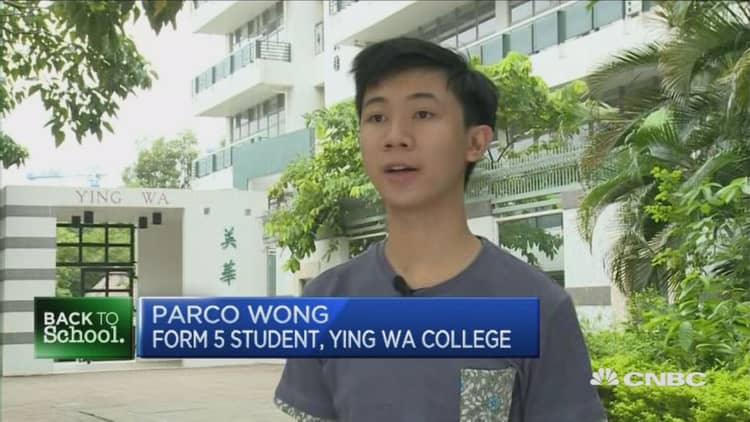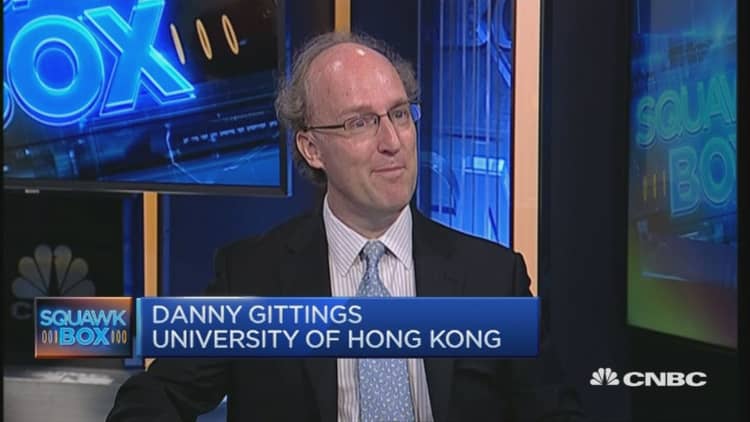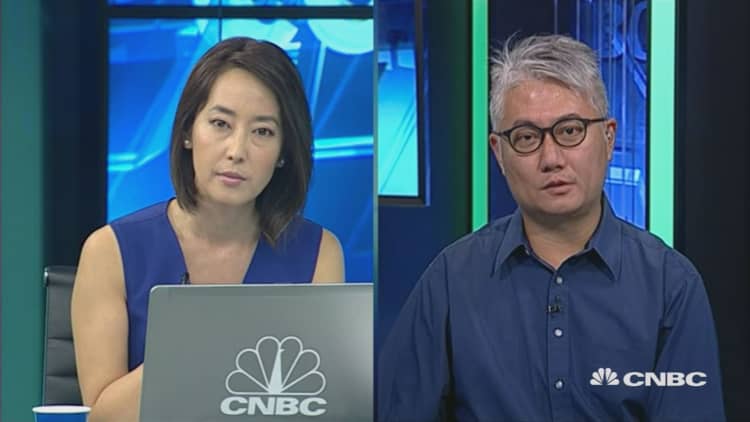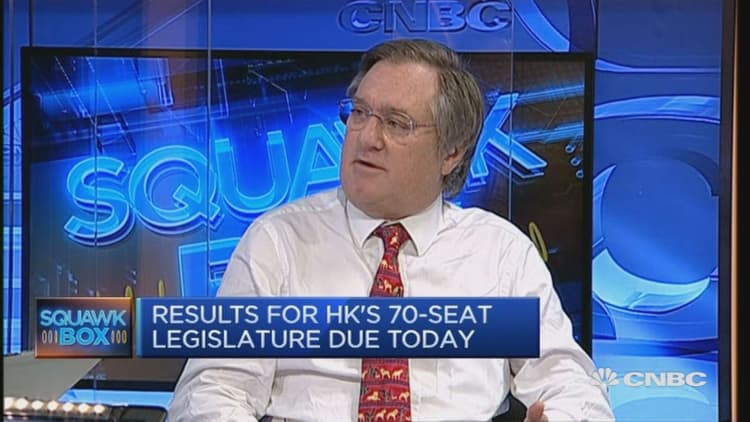



Several pro-independence candidates won seats in Hong Kong's legislative council election on Sunday, Reuters reported citing early results, underscoring divisions in the city amid tensions with Beijing.
Full results are expected later Monday but Reuters reported at 9:45 a.m. London time that the pro-democracy camp retained its one-third veto bloc.
It was the first major election since the pro-democracy Umbrella Movement in 2014, and the most contentious. Up for grabs were 70 legislative council seats, with some pro-democracy candidates disqualified from running in the election by the Beijing-aligned Hong Kong government.
Polls were supposed to close at 10.30 p.m. SIN/HK, but the record 2.2 million turnout meant that the last vote was only cast after 2 a.m.
Beijing's influence on the city, as the mainland government turns its screws on political and civil liberties in Hong Kong, is thought to have spurred many voters.
It comes against the backdrop of an economic slowdown in Hong Kong and China, as the mainland undergoes a transition itself from its traditional manufacturing base to a more service-led economy. This has sparked disenchantment among many of the Hong Kong's residents, who feel disenfranchised from the business and political elite.
As a result, "localist" and pro-independence movements have been on the rise in Hong Kong recently, particularly among young people.
The results are of "symbolic significance" and may set the stage for next year's chief executive election, said Hong Kong Baptist University's Assistant Professor, Benson Wong.
"Hong Kong people are not really happy with administration of (current chief executive) Leung Chun-ying (and) with the Beijing authorities' manipulation of the 'One Country, Two Systems' to that of 'One Country, One System'," he told CNBC's "Capital Connection".
Michael Davis, a senior fellow at the University of Hong Kong, said that the increased interest in independence did not necessarily indicate that Hong Kongers thought the city - which was returned to China by the U.K. in 1997 - would be permitted to split with the mainland.
"Beijing is not noted for allowing parts of China to go independent, so I think independence needs to be understood in the Hong Kong debate more as a form of anxiety and protest over Beijing's foot-dragging over democratic development in Hong Kong and a perception that Hong Kong's autonomy is at risk," Davis told CNBC.
- Emily Tan contributed to this article.

